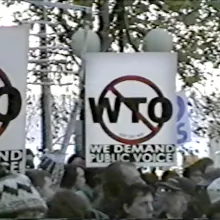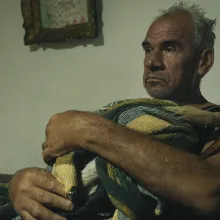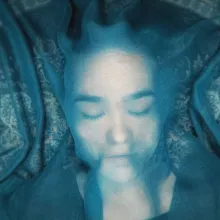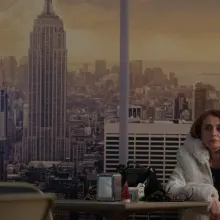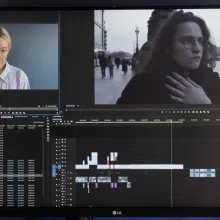In this interview, the Kramer brothers discuss ethical challenges and considerations in Holding Liat and weaving consent into the fabric of their
Interview
Working with over 1,000 hours of archival footage, Ian Bell and Alex Megaro connect their record of Seattle’s 1999 mass protests, WTO/99, with present
Tamara Kotevska discusses how patiently filming white storks resulted in The Tale of Silyan’s story of North Macedonian ecological and economic
In this interview, Julie Goldman reflects on building Motto Pictures through the documentary bubble and bust by staying rooted in collaboration
Brittany Shyne’s debut feature, Seeds, frames with dignity and grace the lives of Centennial Black farmers
Bernardo Ruiz reflects on his decades-long career, “humblecore” independent filmmaking, and the first retrospective of his work
With IDFA-winner A Fox Under a Pink Moon, Mehrdad Oskouei evolves his work with marginalized youths into a remote-directed collaboration with
Gianluca Matarrese discusses his festival darlings GEN_ and I Want Her Dead, plus why “documentary probably doesn’t exist”
In this interview, Mstyslav Chernov discusses how he transformed war reporting into immersive cinema in 2000 Meters to Andriivka
In this interview, Marc Isaacs discusses his latest provocation, a hybrid doc set at the fictional “Synthetic Sincerity Lab”






